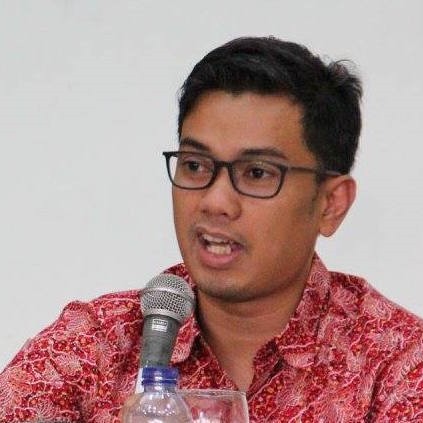 Sulfikar Amir
Sulfikar Amir
Associate Professor
Division of Sociology
School of Humanities and Social Sciences
College of Humanities, Arts, & Social Sciences
Nanyang Technological University, Singapore
sulfikar@ntu.edu.sg
Sulfikar Amir is an associate professor in the Division of Sociology NTU. His research interests include sociology of technology, development, globalisation, sociology of risk and resilience, and city studies. He is the author of The Technological State in Indonesia: the Co-constitution of High Technology and Authoritarian Politics (Routledge, 2012). He has conducted research on nuclear politics and risk in Southeast Asia, examining the social and political dimensions of nuclear power in emerging democracies. His ongoing project on nuclear risk examines the root cause of vulnerability in the Fukushima nuclear crisis.
Currently, Sulfikar Amir is a PI in the Future Resilient Systems (FRS) project, a five-year research program coordinated by Singapore-ETH Center. In 2012, he produced “Nuklir Jawa”, a documentary film that depicts the debate around the construction of nuclear power plants in Central Java, Indonesia. Most recently, he completed “A Journey to Namie”, a short documentary film that shows the impact of nuclear disaster on a small town in Fukushima, Japan.
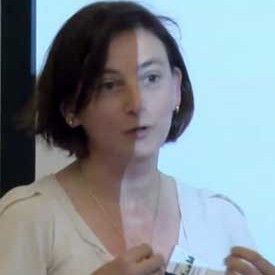 Monika Buscher
Monika Buscher
Professor
Department of Sociology
Director
Centre for Mobilities Research
Lancaster University, UK
m.buscher@lancaster.ac.uk
Monika Büscher is Professor of Sociology, Director of the Centre for Mobilities Research and Associate Director for the Institute for Social Futures at Lancaster University. She co-edits the book series Changing Mobilities.
Monika currently leads research on disaster mobilities and ethical, legal and social issues of IT innovation in the EU FP7 SecInCore project. In 2011 she received an honorary doctorate for her work in interdisciplinary participatory design and IT innovation at Roskilde University, Denmark.
Her theoretical orientation builds on phenomenology, pragmatism, ethnomethodology, workplace studies, science and technology studies, feminist theory, non-representational theory. Public sociology, participatory design, computer supported cooperative work, design studies and service design furnish epistemologies and methodologies for engagement with stakeholders.
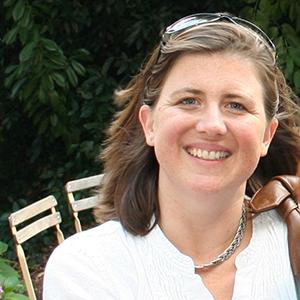 Charlotte Cabasse
Charlotte Cabasse
Ethnographer
Berkeley Institute for Data Science
University of California Berkeley, USA
charlottecabasse@berkeley.edu
Charlotte Cabasse-Mazel holds a PhD in Geography and Science and Technologies Studies from the University of Paris-Est, where she studied at the Laboratoire Techniques, Territoires et Sociétés (LATTS), at Ecole Nationale des Ponts et Chaussées. She is interested in the ways in which practices and methodologies of data science transform production of knowledge and interdisciplinary collaboration, as well as scientific personae and trajectories within the academic institution.
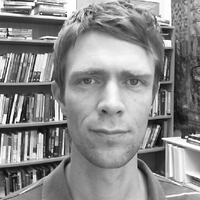 Ashley Carse
Ashley Carse
Assistant Professor
Department of Human & Organizational Development
Vanderbilt University, USA
ashley.carse@vanderbilt.edu
Ashley Carse is an Assistant Professor in the Department of Human and Organizational Development at Vanderbilt University. He received his PhD in Anthropology from UNC-Chapel Hill in 2011. Before beginning at Vanderbilt, he was a National Science Foundation Postdoctoral Fellow in Science, Technology, and Society at the University of Virginia and a Mellon Postdoctoral Fellow in Environmental Anthropology at Whittier College.
Carse’s teaching and research are interdisciplinary, bridging anthropology, development studies, geography, environmental history, and science and technology studies. He uses qualitative and historical methods to study environmental management, international development, global transportation networks, and the social dimensions of infrastructure. The Fulbright Program, National Science Foundation, Smithsonian Institution, and Wenner-Gren Foundation have supported his research.
In addition to long-term research in Panama, he has worked in Ecuador and North Carolina. The MIT Press published his book Beyond the Big Ditch: Politics, Ecology, and Infrastructure at the Panama Canal in 2014. Carse has also published in American Anthropologist, Harvard Design Magazine, Social Studies of Science, and edited volumes. In 2013, his article, “Nature as infrastructure: Making and managing the Panama Canal watershed” was awarded the Joel Tarr Prize for the best article on environment and technology in history. More information is available at www.ashleycarse.com.
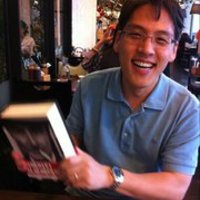 Hyungsub Choi
Hyungsub Choi
Professor
School of Liberal Arts
Seoul National University of Science and Technology,
South Korea
hchoi@seoultech.ac.kr
Hyungsub Choi is a historian of technology at the School of Liberal Arts, Seoul National University of Science and Technology. His research interests include the history of semiconductor technology, materials science, and nanotechnology. More recently, Choi has been interested in the history of technology in East Asia, with a focus on South Korea within a transnational flow of knowledge, artifacts, and people. His works have appeared in Technology and Culture, Social Studies of Science, and IEEE Annals for the History of Computing. Choi currently serves as associate editor of the Korean Journal of the History of Science and sits on the editorial board of East Asia Science, Technology, and Society.
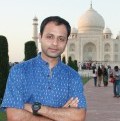 Diganta Das
Diganta Das
Assistant Professor
National Institute of Education
Nanyang Technological University, Singapore
diganta.das@nie.edu.sg
Diganta Das is an assistant professor of Human Geography at Humanities and Social Studies Education Academic Group, National Institute of Education, Nanyang Technological University. He received his B.A.(Hons) in Geography from Cotton College, Masters in Geography from Jawaharlal Nehru University (JNU), India and M.Phil in Planning and Development from Indian Institute of Technology (IIT),Bombay. He received his Ph.D. in Geography from National University of Singapore (NUS).
He is a human geographer whose work focusses on issues of urban development in South Asia, especially around urban policy mobility and experience high-tech space making. His current research interests focus on relations between high-tech space making and issues of human agency in urban India; changing dynamics of (urban) waterscape; issues of liveability and sustainable urban development. He is currently the Principal Investigator (PI) for a research project that examines the increasing policy mobility between Asian nations and resultant grounded reality of urban dynamics. He is also the co-PI for another research project that examines comparative urban liveability of Asian cities.
His research work has been published in journals such as Cities, Urban Geography, Singapore Journal of Tropical Geography (SJTG) and also as book chapters. Apart from research, he teaches both graduate and undergraduate courses in urban geography, economic geography and global cities.
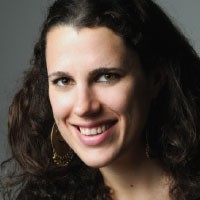 Megan Finn
Megan Finn
Assistant Professor
Information School
University of Washington, USA
megfinn@uw.edu
Megan Finn is an Assistant Professor at University of Washington’s Information School. Her work examines relations amongst institutions, infrastructures, and practices in the production, circulation, and use of information. Currently, she is examining these themes in a book, called Documenting Aftermath: Event Epistemology and the Informatics of Disaster, under contract with MIT Press. Her book brings together perspectives and approaches from information studies, science and technology studies, and the history of media, information, and communication.
She is particularly interested in questions that require historical and contemporary analysis, including: How do changing technological infrastructures and changing information practices shape one another? How can information practices and infrastructures bridge social, geographic and historical contexts? How should we evaluate the potential for new information technologies and infrastructures to enhance understanding and awareness after unusual events?
More information about her work is available at https://meganfinn.org/.
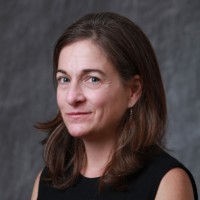 Kim Fortun
Kim Fortun
Professor and Department Head
Department of Science and Technology Studies
School of Humanities, Arts, and Social Science
Rensselaer Polytechnic Institute, USA
fortuk@rpi.edu
Kim Fortun, a cultural anthropologist, is Professor and Department Head of Science & Technology Studies at Rensselaer Polytechnic Institute. Her research and teaching focus on environmental risk and disaster, and on experimental ethnographic methods and research design. Her research has examined how people in different geographic and organizational contexts understand environmental problems, uneven distributions of environmental health risks, developments in the environmental health sciences, and factors that contribute to disaster vulnerability.
Fortun’s book Advocacy After Bhopal Environmentalism, Disaster, New World Orders was awarded the 2003 Sharon Stephens Prize by the American Ethnological Society. From 2005-2010, Fortun co-edited the Journal of Cultural Anthropology. Currently, Fortun is working on a book titled Late Industrialism: Making Environmental Sense, on The Asthma Files, a collaborative project to understand how air pollution and environmental public health are dealt with in different contexts, and on design of the Platform for Experimental and Collaborative Ethnography (PECE), an open source/access digital platform for anthropological and historical research.
Fortun also runs the EcoEd Research Group, which turns ethnographic findings about environmental problems into curriculum delivered to young students (kindergarten-grade 12), and is helping organize both the Disaster-STS Research Network, and the Research Data Alliance’s Digital Practices in History and Ethnography Interest Group. Fortun co-edits (with historian Scott Knowles) a book series for University of Pennsylvania Press titled Critical Studies in Risk and Disaster, designed to connect academic research to public problems and policy, reaching audiences in different regions of the world.
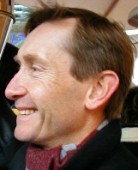 Stephen Healy
Stephen Healy
Senior Lecturer
School of Humanities and Languages
University of New South Wales, Australia
s.healy@unsw.edu.au
Stephen Healy, although technically trained, teaches into the Environmental Humanities Program in the School of Humanities and Languages UNSW, Sydney. He has worked for the Energy Policy Research Unit of Greenpeace International, the NSW Environmental Protection Authority and for Middlesex University (London, UK) where he led the Science, Technology and Society (STS) Program. His research interests encompass: the role of science and technology in contemporary environmental problems; issues of global environmental change, particularly climate change; energy issues/politics; risk, uncertainty and resilience; public participation, and consumption. His work also embraces transdisciplinarity across the social/natural sciences and engineering, primarily via collaboratively supervised doctoral projects.
The formal analytical approach taken by this work ranges from a descriptive idiom, commonly grounded in collaborative research with technical practitioners, through to critical analyses framed by post-humanist science studies. The latter, which benefit considerably from the empirical grounding provided by the former, are increasingly focused by praxeographic, post-foucauldian analyses of the dynamics of socio-material ensembles (variously labelled ‘collectives’, ‘assemblages’, ‘agencements’ etc), which pervade and structure the contemporary world and involve analysis of how these constitute power (understood in Foucauldian terms).
He recently co-authored the chapter ‘Resilience: Contingency, Complexity and Practice’ in Vulnerability in Technological Cultures: New Directions in Research and Governance published by MIT press.
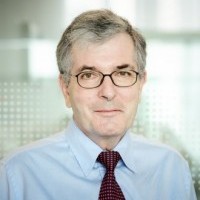 Hans Rudolf Heinemann
Hans Rudolf Heinemann
Professor
Future Resilient Systems Programme (FRS)
Singapore-ETH Centre, Singapore
hans.heinimann@frs.ethz.ch
Hans Rudolf Heinimann is a professor of Forest Engineering at ETH (1991-present). He started office as a faculty member with the former Department of Forest and Wood Research of ETH, where he was promoted to full professor in 1997. He was a visiting professor at the Forest Engineering Department of Oregon State University (1999 to 2000), USA; at the University of Tokyo (summer 2009), Japan, Faculty of Agriculture, and at the Australian National University in 2013, where he was with the Centre for Higher Education, Learning and Teaching (CHELT). From 2004 to 2009, he was a fellow at the Collegium Helveticum, a centre of advanced studies jointly sponsored by ETH and the University of Zurich focusing on cross-disciplinary research.
Heinimann has been actively involved in his international scientific community, actually coordinating the “Forest Operations Engineering and Management” division of the International Union of Forest Research Organisations (IUFRO). He had different positions in university bodies, such as head of department, director of studies, head of institute, head of faculty recruiting committees, etc. He was the Pro-rector for Education of ETH from 2007 to 2013 and is a founding member of the ETH Risk Centre, of which he was the chairman from 2011 to 2013. He is a member of several scientific and professional societies, e.g., a member of the Swiss Academy of Engineering Sciences (SATW).
His research aims at designing and continuously improving land use policies and practices that are environmentally sound, physically feasible, economically efficient and institutionally acceptable. Recent research work has been focusing on spatially explicit optimisation of land use activities, emerging concepts of land-use management (adaptive ecosystem management, precision land-use management), modelling environmental performance of different land-use systems, and risk management of natural hazards. At the Collegium Helveticum, he was involved in behavioural experiments, exploring the influence of emotions on risk behaviour.
Home page: www.lue.ethz.ch/people/hanshei
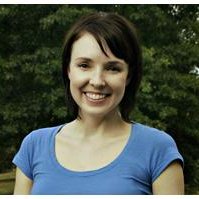 Jennifer Henderson
Jennifer Henderson
Ph.D. Candidate
Science and Technology Studies
Virginia Tech, Blacksburg, USA
henderj@vt.edu
Jen Henderson is a weather disaster scholar who draws on ethnographic and historical methods to understand how experts in the U.S. meteorology community conceptualize and define severe weather risk during high uncertainty, short fuse events, such as flash floods and tornadoes. She asks questions about the types of expertise, sociotechnical networks, and historical contexts that have shape and are shaped by current practices in weather prediction and is particularly interested in ethical and normative assumptions underpinning disaster discourse.
She has served as a social science consultant on two service assessments for the National Weather Service–the 2012 historic derecho and the 2013 OKC tornadoes and flash flooding–and was a participant in the AMS Summer Policy Colloquium in 2012.
She is a co-founder of the Disaster Collaboratory and is member of the planning committee for the new National Alliance for Social Behavioral Systems and Extreme Environmental Events at University of Oklahoma. Last year she was an Advanced Study Program predoctoral fellow at the National Center for Atmospheric Research in Boulder, Colorado, and has conducted ethnographic work with forecasters in three National Weather Service offices to better understand the weather warning process.
She is a Ph.D. candidate in Science and Technology Studies at Virginia Tech and holds an M.F.A. in Creative Nonfiction from Goucher College. More information is available at http://jenhenderson.com.
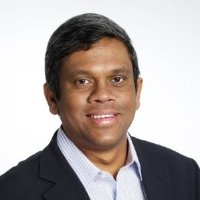 Bingunath Ingirige
Bingunath Ingirige
Professor of Project Management and Resilience
Global Disaster Resilience Centre (GDRC)
School of Art Design & Architecture
University of Huddersfield, UK
B.Ingirige@hud.ac.uk
Bingunath Ingirige is attached to the Global Disaster Resilience Centre (GDRC) at the University of Huddersfield, UK. (see http://www.hud.ac.uk/gdrc). He holds the Chair in Project Management and Resilience at the School of Art Design & Architecture within the University. Prof. Ingirige’s main research interests are in the area of flood adaptation and community resilience against flooding and other weather extremes. He has been the co-investigator of the EPSRC funded Community Resilience to Extreme Weather (CREW). He currently serves as one of the investigators of the EU Horizon 2020 funded EU-CIRCLE project that looks into critical infrastructure resilience. He has extensive experience in investigating resilience measures of small businesses, private sector and other stakeholder collaborative engagement processes and capacity building knowledge sharing activities between developed and developing countries that contribute towards policy initiatives in the area. Among his publications is a background paper titled “private investment and disaster risk management” to the UNISDR’s 2015 Global Assessment Report (GAR). He is also a contributing author of the report of the UK Climate Change Risk Assessment (UK CCRA), particularly its chapter on business and industry.
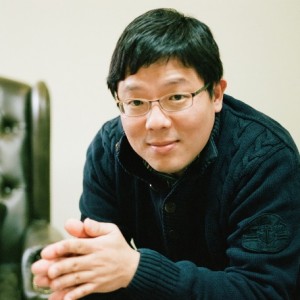 Chihyung Jeon
Chihyung Jeon
Assistant Professor
Graduate School of Science and Technology Policy
Korea Advanced Institute of Science and Technology,
South Korea
cjeon@kaist.edu
Chihyung Jeon is an assistant professor at the Graduate School of Science and Technology Policy (STP) of the Korea Advanced Institute of Science and Technology (KAIST) in South Korea. He is also affiliated with the KAIST Institute for Disaster Studies (KIDS), which was established in the wake of the Sewol ferry disaster in 2014 to conduct collaborative research on disasters. He received his PhD degree in STS (Science, Technology & Society) from the Massachusetts Institute of Technology. Before joining KAIST STP, he spent a year at the Max Planck Institute for the History of Science in Berlin as a postdoctoral research fellow.
Jeon’s research interests include the sociocultural relationship between humans and technologies, the politics of engineering in South Korea, the cultures of robotics and simulation in South Korea, the technologies and cultures of remoteness, and the sociotechnical understanding and education of disasters. As a scholarly and pedagogical response to the Sewol ferry disaster of 2014, he collaborated with several Korean scholars to create an educational website Teach Sewol, which provides primary documents, reading materials, photo collections, and class modules for both educators and students. He also works as the Korean language editor for Teach 3.11, a web-based project to help educators find teaching resources about the 2011 earthquake, tsunami, and nuclear disasters in Japan.
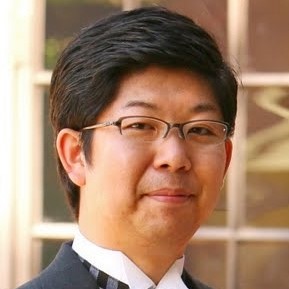 Kohta Juraku
Kohta Juraku
Assistant Professor
Department of Humanities and Social Sciences
Tokyo Denki University, Japan
juraku@mail.dendai.ac.jp
Kohta Juraku is an assistant professor at the Department of Humanities and Social Sciences, Tokyo Denki University (TDU), Japan. He has a series of works of sociological study on nuclear utilization and other energy technologies, such as “The Failure of Japan’s ‘Successful’ Nuclear Program: Structural Problems Revealed by the Fukushima Daiichi Nuclear Accident” (in Hindmarsh, R. (ed.) Nuclear Disaster at Fukushima-1: Social, Political and Environmental Issues. Routledge, 2013). He received his PhD in interdisciplinary information studies from the University of Tokyo in 2011.
His current research interests are social learning process from the nuclear accident, as well as public deliberation process on nuclear waste disposal and nuclear policy in general. He is also interested in the engineering and administrative practices centering on the concept of “resilience” and co-authored a paper “Undermining Disaster: Engineering and Epistemological Bias in the Fukushima Nuclear Crisis” (in Engineering Studies, 6(3), 2014) with his colleague Prof. Sulfikar Amir.
Before joining TDU, he had worked at the Department of Nuclear Engineering and Management, the University of Tokyo from 2008 to 2012. Also, he spent over a year at the Department of Nuclear Engineering, UC Berkeley from 2010 to 2011 as a visiting scholar. As a sociologist of science and technology, he had very particular experiences of “collaborations” with and “observations” on nuclear engineers at those departments during the period including the Fukushima nuclear accident.
He co-edited a textbook, Reflections on the Fukushima Daiichi Nuclear Accident: Toward Social-Scientific Literacy and Engineering Resilience (Springer, 2015), with his interdisciplinary/international colleagues based on those experiences.
 Vivek Kant
Vivek Kant
Research Fellow
School of Humanities and Social Sciences
College of Humanities, Arts, & Social Sciences
Nanyang Technological University, Singapore
vkant@ntu.edu.sg
Vivek Kant is a research fellow at Division of Sociology, School of Humanities and Social Sciences; and Institute of Catastrophe Research Management, Nanyang Technological University (NTU), along with Future Resilient Systems, Singapore-ETH Centre. His research interests are human technology interaction (human factors/human computer interaction); history and philosophy of engineering; and human knowing and acting (ecological psychology, symbolic interactionism, activity theory).
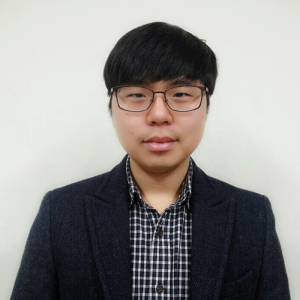 Sungeun Kim
Sungeun Kim
Graduate School of Science and Technology Policy
Korea Advanced Institute of Science and Technology,
South Korea
kim8278@kaist.ac.kr
Sungeun Kim is a master’s student at Graduate School of Science and Technology Policy (STP), at Korea Advanced Institute of Science and Technology (KAIST.) Before joining STP, he majored chemistry as an undergraduate at the same institute. As a member of a policy program, his main research focus is on utilizing theoretical frameworks from history, anthropology, and STS to provide novel perspectives to better understand, analyze, and design S&T related policies. He conducted research projects on the evaluation of scientific evidence in Korean toxic tort litigations, construction of technological citizenships within Korean software engineers, and configuration of ‘remote patient’ during the telemedicine initiatives driven by the current Korean administration.
Recently, he is developing his master’s thesis on the historical evolution of Korean internet infrastructure as a lens to observe the sociotechnical imaginaries and the state-citizen relationship in the heavily wired nation. His other academic interests are in understanding the current ‘turns’ to material, spatial, and infrastructural subjects in social science and examining how these approaches can be truly useful in studying the modern life.
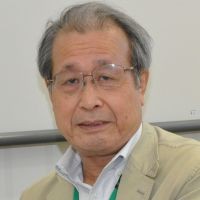 Masaharu Kitamura
Masaharu Kitamura
Emeritus Professor
Tohoku University
President
Research Institute for Technology Management Strategy,
Japan
kitamura@temst.jp
Masaharu Kitamura is President of Research Institute for Technology Management Strategy which he founded in 2012. Previously he served as a faculty member of Tohoku University, Department of Nuclear Engineering for 36 years and now he is Emeritus Professor at Tohoku University. His professional areas include instrumentation and control of nuclear power plants, human factors and organizational safety in nuclear and general industries, and ethics in engineering. He is also active in the areas of public dialogue on nuclear risk and resilience engineering.
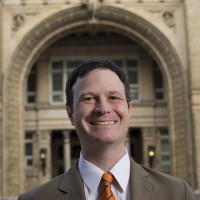 Scott Gabriel Knowles
Scott Gabriel Knowles
Associate Professor and Interim Head
Department of History
Drexel University, USA
sgk23@drexel.edu
Scott Gabriel Knowles is Associate Professor and Interim Head of the Department of History, Drexel University. He is also a research fellow of the Disaster Research Center of the University of Delaware. He is the author of The Disaster Experts: Mastering Risk in Modern America (2011), and is series co-editor (with Kim Fortun) of “Critical Studies in Risk and Disaster” (UPenn Press). His work on the history of risk and disaster has appeared in the Natural Hazards Observer, Journal of Policy History, Technology and Culture, and Engineering Studies–he has also written for popular venues such as Slate, Conservation Magazine, U.S. News and World Report, the Philadelphia Inquirer, and The Hill. Knowles is presently working on a new book titled Slow Disaster; as well as a second project comparing disaster research globally in the new “age of resilience.”
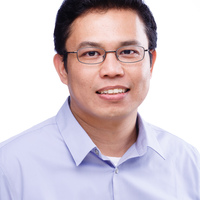 Anto Mohsin
Anto Mohsin
Assistant Professor
Liberal Arts Program
Northwestern University in Qatar, Qatar
anto.mohsin@gmail.com
Anto Mohsin is Assistant Professor in Residence in the Liberal Arts Program of Northwestern University in Qatar (NU-Q). He received his PhD in science and technology studies (STS) from Cornell University. Prior to joining NU-Q, he held a Henry Luce Postdoctoral Fellowship in Asian Environmental Studies at Hobart and William Smith Colleges. His teaching and research interests include STS, energy studies, environmental studies, disaster studies, and Southeast Asian studies.
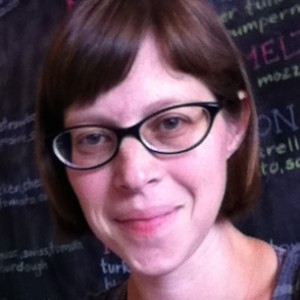 Katrina Petersen
Katrina Petersen
Research Associate
Centre for Mobilities Research
Lancaster University, UK
k.petersen@lancaster.ac.uk
Katrina Petersen received her PhD in 2014 from University of California, San Diego in Communication and Science Studies. Her main research has been on disaster maps as communication tools, examining how knowledge of a disaster and risk is connected to what goes into visually representing them. She is especially interested in why some representations encourage shared understandings shared between groups while others impede collaboration. She also is interseted in the relationship been environmental imaging technologies, scientific models, and cultural understandings of lived space. In the course of her research, she has worked as a disaster response volunteer for the San Diego chapter of the American Red Cross, both as a government liaison and as a disaster mapper.
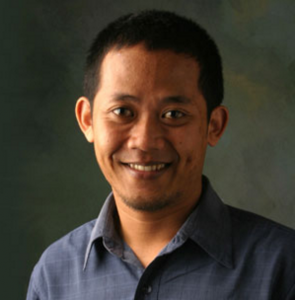 Kurniawan Adi Saputro
Kurniawan Adi Saputro
Lecturer
Department of Photogrphy
Indonesia Institute of the Arts Yogyakarta, Indonesia
kurniawan.as@isi.ac.id
Kurniawan Adi Saputro’s training is in communication science. He received an undergraduate education in mass communication at Gadjah Mada University, ID; a master education in media and communication studies at Florida State University, US; and his doctoral research on disaster communication was conducted at Sheffield Hallam University, UK.
He has been conducting research on how media audiences/users make use of, or affected by, different media in the contexts of human rights issues, disaster, and now climate change. The main goal is to understand our mediated world from audiences’ perspectives.
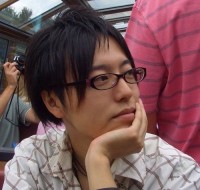 Ryuma Shineha
Ryuma Shineha
Assistant Professor
Faculty of Arts and Literature
Seijo University, Japan
r_shineha@seijo.ac.jp
Ryuma Shineha is a tenured assistant professor at Seijo University. His major is Science & Technology Studies (STS). He received his PhD from Kyoto University in 2011. He was a member of the Science and Society section at the Graduate University of Advanced Studies (SOKENDAI) from 2011 to 2014 as an assistant professor. His primary research theme is dynamics of media trend of biotechnology in Japan, particularly on case of genetically modified organisms (GMO), stem cell, and regenerative medicine. He also has interests in science policy and research evaluation system. In addition, he has conducted surveys on communication between scientists and the public. After the 3.11, he started researches of media ecosystem concerning the 3.11 with his collaborators. As examples of his current works are below:
- Ryuma Shineha. “Attention to Stem Cell Research in Japanese Mass Media: Twenty-Year Macrotrends and the Gap between Media Attention and Ethical, Legal, and Social Issues” East Asian Science, Technology and Society: An International Journal, 10(1), pp1-18, 2016.
- Ryuma Shineha. “Social structure behind the 3.11”, in Masaki Nakamura (Eds) Science and Politics after the Disaster of March 11 in Japan, Chapter.5, pp179-224. Nakanishiya Press, 2013. (In Japanese)
- Mikihito Tanaka, Ryuma Shineha, Kiichiro Maruyama. Disaster Vulnerable and Information Vulnerable: What has been overlooked after the 3.11. Chikuma Books, 2012. (In Japanese)
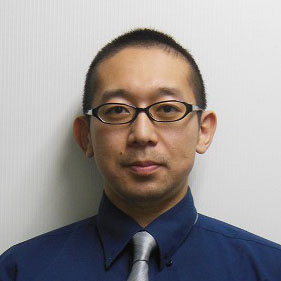 Shin-etsu Sugawara
Shin-etsu Sugawara
Research Scientist
Central Research Institute of Electric Power Industry,
Japan
sugawara@criepi.denken.or.jp
Shin-etsu Sugawara is a research scientist at the Socio-Economic Research Center and Nuclear Risk Research Center, Central Research Institute of Electric Power Industry (CRIEPI), Japan.
He graduated from a transdisciplinary educational programme which was composed of nuclear engineering and social studies of science. Leveraging his interdisciplinary background, he has addressed societal and governance issues around nuclear energy use in cooperation with industry practitioners, natural scientists and also social scientists. He has a series of works of social-scientific studies on stakeholder involvement process in nuclear siting areas, such as “Practices and Experiences of local stakeholder involvement in France, UK and Japan”, Forum for Nuclear Cooperation in Asia (FNCA), 2014. His current research interests are nuclear emergency preparedness based on the Fukushima lessons as well as the integration of social-scientific analysis into risk management for nuclear safety, particularly the issue of “how safe is safe enough”.
Before joining CRIEPI, he had been involved as a member of the Independent Investigation Commission on the Fukushima Nuclear Accident, Rebuild Japan Initiative Foundation (RJIF), which had provided an independent analysis of the causes of the accident. In the accident investigation, he had contributed particularly to the analysis of regulatory and governance issues concerning severe accident and external event risks, in Chapter 6 of the Commission Report, The Fukushima Daiichi Nuclear Power Station Disaster: Investigating the Myth and Reality (Routledge, 2014).
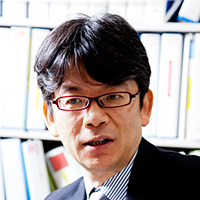 Makoto Takahashi
Makoto Takahashi
Professor
Department of Quantum Science and Energy Engineering
Tohoku University, Japan
makoto.takahashi@qse.tohoku.ac.jp
- 1992 Research Associate, Institute of Atomic Energy, Kyoto University
- 1996 Research Associate, Dept. of Quantum Science and Energy Engineering, Graduate School of Engineering , Tohoku University
- 2000 Associate Professor, Dept. of Quantum Science and Energy Engineering, Graduate School of Engineering , Tohoku University
- 2012 Professor, Dept. of Quantum Science and Energy Engineering, Management of Science and Technology Department, Graduate School of Engineering, Tohoku University
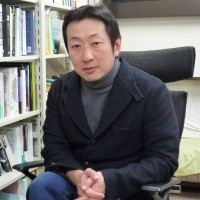 Mikihito Tanaka
Mikihito Tanaka
Associate Professor
Graduate School of Political Science
Waseda University, Japan
steman@waseda.jp
Dr. Mikihito Tanaka is an Associate Professor at the Graduate School of Political Science in Waseda University, Tokyo. He has spent most of his career working as a biologist and journalist, and currently researches teaches data journalism and science journalism. Tanaka is the co-founder and member of the Science Media Centre of Japan.
 Justyna Tasic
Justyna Tasic
Institute of Catastrophe Risk Management
Interdisciplinary Graduate School
Nanyang Technological University, Singapore
TASI0001@e.ntu.edu.sg
Justyna is a doctoral researcher at Institute of Catastrophe Risk Management, Interdisciplinary Graduate School, Nanyang Technological University. She is also a researcher at Singapore-ETH Centre, as a part of the Future Resilient Systems (FRS) Programme. Her current research focuses on investigating the impacts of organizational interdependencies on system emergency performance. The research aims to measure and map out the structure of organizational interdependencies in Singapore’s Power System, and locate fault-prone interactions that can hinder the emergency response capacity.
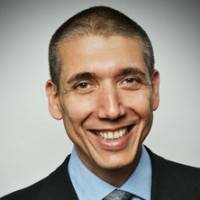 José L. Torero
José L. Torero
Professor and Head of School
School of Civil Engineering
University of Queensland, Australia
j.torero@uq.edu.au
Professor José L. Torero is the Head of the School of Civil Engineering at The University of Queensland. He is a leader in the field of Fire Safety Engineering where he specializes in the behavior of fire in complex environments such as forests, tall buildings, novel architectures, tunnels, aircraft and spacecraft. He holds a BSc for the Pontificia Universidad Católica del Perú (1989), and an MSc (1991) and PhD (1992) from the University of California, Berkeley and a Doctor Honoris Causa from Gent University, Belgium. Jose is a Chartered Engineer (UK), a fellow of the Society of Fire Protection Engineers (USA), the Australian Academy of Technological Sciences and Engineering, the Royal Academy of Engineering (UK) and the Royal Society of Edinburgh (UK).
Jose joined The University of Queensland in 2012 following appointments as the Landolt & Cia Chair in Innovation for a Sustainable Future at Ecole Polytechnique Fédéral de Lausanne, BRE Trust/RAEng Professor of Fire Safety Engineering at The University of Edinburgh, Associate Professor at the University of Maryland and Charge de Recherche at the French National Centre for Scientific Research.
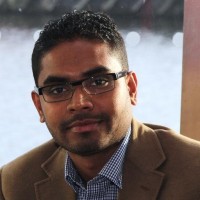 Gayan Wedawatta
Gayan Wedawatta
Lecturer
School of Engineering and Applied Science
Aston University, UK
g.wedawatta@aston.ac.uk
Gayan Wedawatta is a lecturer in construction management at Aston University, UK. His research interests include extreme weather events and construction SMEs, disaster management, resilience of SMEs and adaptation to flooding. He has contributed to a number of externally funded research projects addressing these research areas. He regularly reviews papers related to these research areas on a number of international refereed journals including Construction Management and Economics, Disasters, and International Journal of Disaster Resilience in the Built Environment and peer reviewed international conferences.
